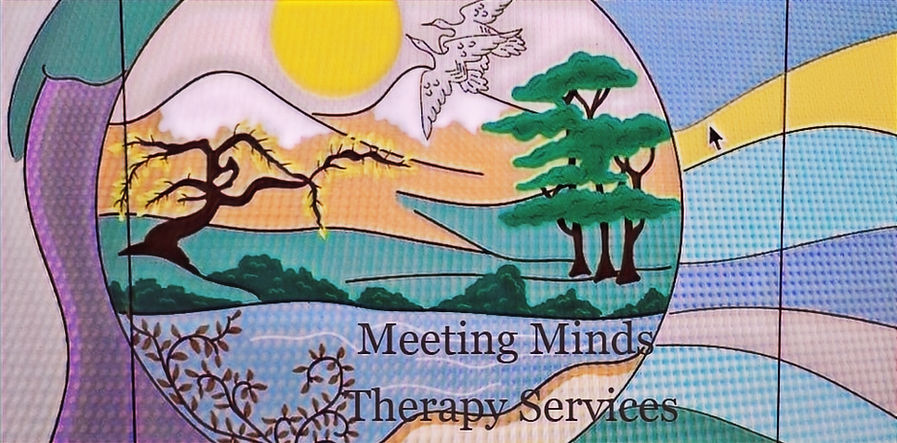Is Seeking Emotional Support from ChatGPT Beneficial or Detrimental for Men?
- Lyn Reed
- Aug 9, 2025
- 3 min read
In today's fast-paced world, many men face emotional struggles.
Unfortunately, societal expectations often discourage open discussions about feelings.
As a result, some men are turning to technology for support, with ChatGPT emerging as a popular yet controversial option.
Is using ChatGPT for emotional support a beneficial choice, or does it hold potential drawbacks?
Let’s explore this important topic.
Understanding the Context
Traditionally, men have been seen as stoic and emotionally reserved, which can make expressing feelings challenging.
The stigma around discussing mental health often deters men from seeking professional help. This context makes ChatGPT particularly appealing to those hesitant to enter a traditional therapy setting. ChatGPT offers immediate interaction and feedback; however, it is essential to recognise its limitations.
Pros of Seeking Emotional Support from ChatGPT
1. Accessibility and Convenience
A primary benefit of using ChatGPT is its accessibility. Available 24/7, ChatGPT offers men the opportunity to seek help when they need it most. According to recent studies, over 60% of men cited time constraints and location as significant barriers to in-person therapy. This makes ChatGPT an appealing alternative, allowing immediate engagement at any hour.
2. Anonymity and Comfort
ChatGPT provides a comforting sense of anonymity. For instance, a study by the American Psychological Association showed that 73% of respondents felt more at ease discussing personal issues with a digital interface than with a human therapist.
This low-pressure environment can encourage honesty and vulnerability, making it easier for men to open up about their feelings.
3. Immediate Feedback
In times of distress, waiting for an appointment can feel daunting. ChatGPT offers immediate responses, allowing users to reflect on their emotions in real-time. Research indicates that quick access to information can enhance coping strategies; users often find it easier to manage anxiety or depression when they do not have to wait for help.
However, there are also significant drawbacks to consider.
Cons of Relying on AI for Emotional Support
1. Lack of Empathy
Despite its supportive responses, ChatGPT lacks genuine empathy. The nuances of human emotions are complex, and the AI cannot replicate the understanding that comes from real human experiences. This limitation can lead men to feel even more isolated if they depend solely on technology for emotional support.
2. Misinterpretation of Emotions
ChatGPT generates responses based on patterns in data, which can sometimes lead to misinterpretations of users' emotions.
A response that doesn’t align with a person’s feelings may deepen existing vulnerabilities.
For example, if someone expresses feelings of sadness and receives a generic, upbeat response, it can exacerbate feelings of rejection.
3. Avoidance of Professional Help
Relying solely on ChatGPT may lead individuals to avoid seeking professional help. While it can serve as a helpful tool, it is important to recognise the distinct benefits of human interaction.
Statistics show that one in five men experiences mental health challenges, and approaching a professional is crucial for addressing significant emotional distress.
Finding a Balance
1. Use as a Supplement
View ChatGPT as a supplement rather than a replacement for professional help.
Men struggling to articulate their feelings might benefit from initial interactions with the AI before speaking with a therapist.
This can ease the transition to face-to-face conversations.
2. Establish Boundaries
Setting boundaries around the use of ChatGPT for emotional support is essential.
Having a plan for when to seek professional guidance can prevent overreliance on AI.
Men might decide to use ChatGPT for daily check-ins, while reserving deeper conversations for a therapist.
3. Engage in Community
It's also a good idea for men to reach out to community groups or support networks.
Engaging with peers who share similar experiences fosters a sense of belonging and understanding that a chatbot cannot provide. Group therapy or local support meetings can strengthen emotional resilience and provide valuable insights.
Summary
The discussion surrounding men seeking emotional support from ChatGPT is both complex and meaningful.
While AI offers accessibility, anonymity, and immediate responses, it lacks the essential qualities of a genuine human connection.
Balancing the use of technology for initial assistance with the importance of professional help is vital for emotional well-being.

Technology can be a valuable resource, but human connection remains irreplaceable in navigating our emotional landscapes.
So, while the AI can simulate conversations and offer advice, if you are struggling with your personal interactions, Meeting Minds Therapy Services encourages you to seek professional help.
